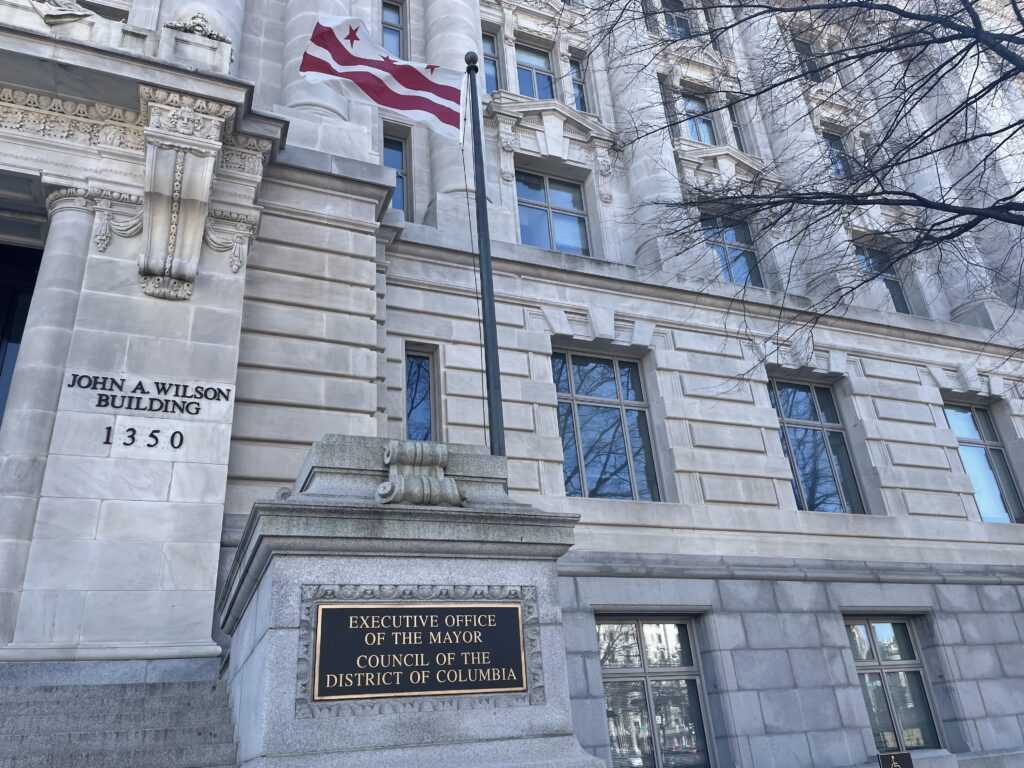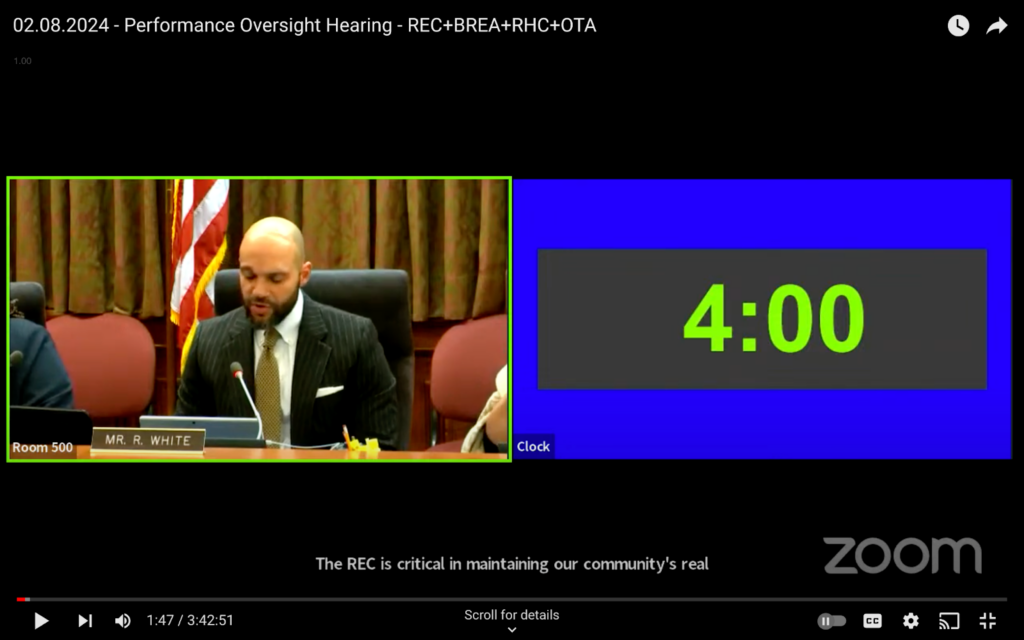At its last meeting before the summer recess, the D.C. Council voted unanimously to pass two bills related to housing. The first reforms a major housing program for people exiting homelessness. The second builds on existing tenant protections.
First, the council approved a measure to allow families in Rapid Rehousing (RRH) to remain beyond the usual time limit if they are unable to afford housing without the subsidy. Though RRH is supposed to help families afford rent on their own after a year, few participants have been able to achieve this, leading advocates and some legislators to warn that the program cycles people back into homelessness. The emergency legislation, if signed by the mayor, would be in place for 90 days while the council considers permanent reform.
The second major bill builds on tenant protections the council passed last spring to cap application fees at $50 and require landlords to provide 30 days’ notice to tenants ahead of any rent increases. This year’s version — approved July 11 on first reading — strengthens those measures, requiring 60 days’ notice of rent increases and applying stricter rules on fees. The $50 limit now applies to the sum of all fees charged during the application process, including processing fees. Both provisions are aimed at reducing burdens and uncertainty for low-income renters, according to the bill’s committee report.
At-large Councilmember Robert White, who chairs the Housing Committee and co-introduced the RRH bill, said the D.C. Department of Human Services (DHS) is already allowing some families to stay in the program after their subsidy was supposed to have expired. But there was no guarantee the policy would continue through mid-September, when the council is scheduled to reconvene. The bill ensures any families whose subsidies expire — 207 families in the next six months, according to White — will be considered for an extension.
To qualify for an extension, RRH participants will need to be in good standing with the program. DHS will extend subsidies for six months at a time, as long as funding is available.
“It’s a really important measure to mitigate harm for D.C. families, particularly while Council is out on recess,” the Washington Legal Clinic for the Homeless wrote in an email to Street Sense Media and the DC Line. “Ultimately, we look forward to seeing the permanent legislation that reforms Rapid Rehousing move forward.”
In theory, RRH provides a 12- or 18-month housing subsidy for people leaving homelessness. The goal is for participants to use that time to increase their income so that they can pay rent on their own when the subsidy ends. However, in fiscal year 2021, families increased their income by just $39 a month on average, far short of the amount needed to afford the full rent. Additionally, participants report inconsistent support from case managers.
The Department of Human Services paused some exits from RRH during the last few years due to the pandemic, but ultimately ended the subsidies of over 400 families in the spring of 2022. The agency provided another 700 with a longer-term housing subsidy.
During discussion on the bill, Council Chair Phil Mendelson — who co-introduced the emergency measure — said lawmakers still plan to fully reform RRH. Mendelson proposed legislation last year, but the council never voted on it.
“The Rapid Rehousing program is not being used, in my view, as effectively as it should be. It’s supposed to be short-term housing to help those that can get back on their feet … instead of just sticking them in a perpetual cycle of housing challenge,” Mendelson said. “I don’t think that the Department of Human Services has gotten Rapid Rehousing right.”
Unlike the RRH measure that won temporary approval, the other bill, the Fairness in Renting Act is permanent legislation. The council will need to pass it on second reading in order for it to become law.
At-large Councilmember Christina Henderson introduced the bill this January with initial backing from nine colleagues. After the council last year limited the application fee landlords can charge, some landlords began charging additional fees to make up for the lost income, White said.
Marta Beresin, with the Health Justice Alliance Law Clinic at Georgetown Law Center, said at a May 18 public hearing on the bill that landlords have begun charging her clients extra fees when they apply for rental housing. Often called processing or holding fees, they can amount to $600. According to testimony from Brit Ruffin, director of policy and advocacy at the Washington Legal Clinic for the Homeless, high fees during the application process can discriminate against low-income people who lack the disposable income to bear the extra cost.
The Apartment and Office Building Association of Metropolitan Washington (AOBA), which represents the owners of over 430,000 rental units in D.C., supported the clarification that the total application fees are limited to $50, the organization said in a statement. However, AOBA said the bill goes too far by preventing landlords from charging other fees that may be necessary and appropriate in the lease-up process, like move-in and holding fees. Holding fees, for instance, can provide flexibility for renters who can’t move in immediately, according to AOBA.
“It appears the Council is more focused on prohibiting sensible and relatively small upfront fees than addressing the primary cost drivers of housing,” AOBA’s Director of Policy Communications Alex Rossello wrote in an email to Street Sense Media and The DC Line, adding the legislation “has become a vehicle for making drastic changes to landlord-tenant law far beyond that bill’s original scope.”
In addition to capping application fees, the bill limits to $50 the amount that landlords can charge tenants who sublease their apartments. It also bans landlords from billing tenants for routine maintenance costs, or keeping part of a tenant’s security deposit to cover professional cleaning or standard wear and tear of a unit.
White hopes that the legislation will save tenants money and increase options for tenants searching for new housing.
“By passing this bill, council is taking a step to strengthen its position that housing is a right that must be accessible to all,” White said during the July council meeting.
This article was co-published with The DC Line.
Annemarie Cuccia covers D.C. government and public affairs through a partnership between Street Sense Media and The DC Line. This joint position was made possible by The Nash Foundation and individual contributors.








